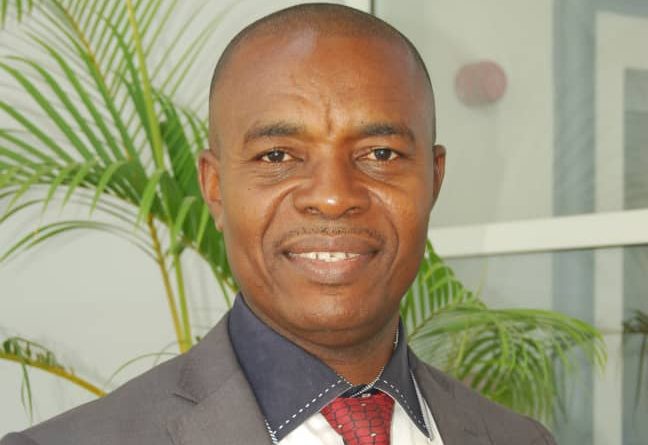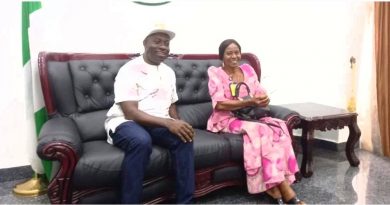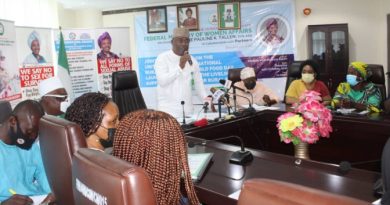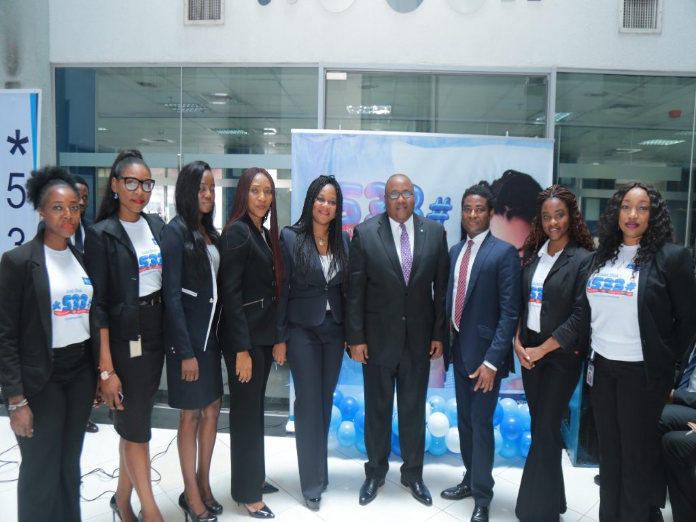Afrihealth Optonet Association, Stakeholders kick off the fight against Gender-Based Violence Globally
Emma Daudu
Afrihealth Optonet Association, a civil society network and think-tank of about 600 (Six Hundred) organizations across Africa, the Caribbean, and the global South for Health; Human Security, Rights, and Dignity; Human Capital Development; Systems Strengthening; promotion of the Sustainable Development Goals (SDGs); and propagation of Health as a state of complete physical, mental and social well-being through Universal Health Coverage (UHC) and health systems strengthening, especially in the areas of the SDGs, diseases prevention, provision of care and impact mitigations using partnerships, advocacy, research/evidence-generation, capacity development, outreaches, and monitoring and evaluation as strategies; focusing on rural and poor urban communities, vulnerable and disadvantaged populations; and exploring the interlinkages between Health, Energy, and Environment, Nutrition and Food Security, and Gender, Good Governance, and Human Rights has taken the lead in putting to stop Gender-Based Violence globally.
This was disclosed by the Global Coordinator/Chief Executive Officer, Afrihealth Optonet Association, Dr. Uzodinma Adirieje.
Dr. Adirieje who is a Health Economist, certified management consultant, professional Manager, Monitoring and Evaluation specialist, Community leader, Development Worker, Reproductive Health advocate and former newspaper columnist disclosed this to journalists in Abuja yesterday while fielding questions from Journalists.
He said, “the CS4EGBV Project has been set up to provide opportunities for AFRIHEALTH, its Partners and other CS stakeholders to push for the achievement of total elimination of GBV worldwide by 2030.”
Continuing, he stated that the project was one of the recommendations received from the international webinar initiated and organized by Afrihealth Optonet Association to mark the ’16 Days of Action against GBV’, 2020.
“Our vision of the CS4EGBV Project is a world where GBV against women, girls, and everyone is eliminated. Stakeholders from Nigeria, Egypt, Kenya, Zimbabwe, Ghana, Uganda, and Mozambique were among the participants”.
Responding to a question in regards to what informed the organization to take up gender-based violence project as one of its major priorities at a time that the COVID-19 pandemic is ravaging the nook and cranny of the world; Dr. Adirieje elucidated that Gender-Based Violence is a monster and global pandemic. Statistically, he analyzed that one (1) in three (3) women experience GBV in their lifetime.
“Statistics holds it that one hundred and thirty-seven (137) women are likely to be killed by their families because of factors surrounding them. Also, seventy percent (70%) of women globally have been assaulted by someone apart from their partners. Twenty (20) million women experience female genital mutilation and we are still battling it. Women under the ages of eighteen (18) years are still compiled into marriage because they are women. Globally, more than fifteen (15) million girls have experienced forced sex. Eighty (80%) percent of women parliamentarians have reported psychological violence while serving their terms. These are the things that informed Afrihealth’s interventions”, he said.
Reacting to another question on the pieces of machinery put together by Afrihealth in ensuring a smooth achievement of the GBV project on or before 2030, which is the time frame for the project. He responded, “there are already several frameworks that would be used to factor GBV. In 1974 the world came up with a declaration for the protection of women and children in an emergency and armed companies, where GBV is clearly perpetrated like, Civil war, Boko Haram, Soldiers fighting wars. Another framework in 1979, the Convention on the Elimination of all Forms of Discrimination Against Women (CEDAW). In 1993, the world also had a declaration on the elimination of violence against women, in the year 2000, the world came up with a protocol to prevent, suppress, and punish women traffic offenders. These are a few amidst other frameworks and bases that propel us.
“To us in Afrihealth and the civil society, GBV is a monster. To fight this monster ‘to finish’, we are employing every approach possible amidst which are establishing and strengthening partnerships, collaborations; advocacy, communication and social/resource mobilization; research and evidence-generation; capacity development and learning; outreaches; monitoring and evaluation (M&E). We are promoting advocacy programs, social mobilization programs, community sensitization, communication programs. Also, deploying research to fight it. We would build capacity, strengthen capacity, develop capacity, organize conferences and several others”, he added.




